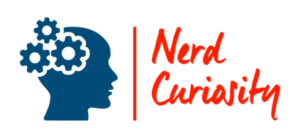Embarking on a career as a product manager brings its fair share of questions, particularly regarding the path to success. You might wonder if you need an MBA to stand out in the competitive landscape of product management. It’s a role where strategic decision-making converges with hands-on execution, and the right educational background could be a crucial ingredient for triumph.

An MBA is not mandatory for product managers, but it can be advantageous.
Continual learning and adapting are hallmarks of a successful product manager. In the forthcoming sections, you’ll uncover insights into how an MBA might contribute to your career, whether through enhancing salary potential or grooming leadership abilities. You’ll also learn about alternative pathways that can lead to success in product management, ensuring you’re well-equipped to make an informed decision about your educational investments.
The Role of Education in Product Management

When charting your path in product management, the educational credentials you hold can have varying impact on your career trajectory.
Understanding the MBA Curriculum
Your journey through an MBA program often covers extensive business and management theories, which are crucial for product management. Courses range from marketing, operations, to finance, providing a holistic view of business that prepares you to make strategic decisions.
Evaluating the Importance of a Degree in Advancing a Product Manager’s Career
Holding a bachelor’s degree in a relevant field is commonly the basic requirement for entering product management. Advancing further, an MBA can potentially elevate your salary and position you for leadership. However, real-world experience often has considerable weight; it’s your achievements that truly speak to your capability.
Exploring Alternatives to an MBA
Seeking alternatives to traditional education? Consider online courses or certifications, which can offer specialization in product management. For a more intensive learning sprint, bootcamps provide hands-on experience and practical skills over a short period. Each of these can complement your existing knowledge and sharpen your skill set.
Essential Skills for Product Managers

The success of a product manager hinges on a diverse set of skills spanning from leadership to insightful understanding of market trends and technology.
Leadership and Vision
Your ability to lead is paramount. As a product manager, you provide direction and inspire your team to follow a shared vision. Leadership involves making strategic decisions, often in the face of uncertainty, and rallying the team to execute the plan with conviction. Visionary thinking is about looking beyond the here and now, anticipating future market trends, and setting a course for the product that aligns with those predictions.
Communication and Interpersonal Skills
Clear and persuasive communication sets the stage for your success. You’ll frequently interact with various stakeholders, requiring you to articulate complex ideas simplistically. It’s not just about what you say, but how you connect with people on an individual level that matters. Whether it’s advocating for user needs with developers or negotiating priorities with executives, your interpersonal skills make these interactions effective.
Understanding of Business and Technology
A dual understanding of business and technology gives product managers a critical edge. Knowing how businesses operate—from financial forecasting to marketing strategies—empowers you to make decisions that align with company goals. Meanwhile, a grasp of technology enables you to understand the art of the possible and to communicate efficiently with your development teams. This combination ensures the products you manage not only meet user needs but are also viable in the marketplace.
Career Development and Networking

When considering the pursuit of an MBA for career advancement in the field of product management, the potential for fostering a robust professional network is equally as vital as the education itself. Business schools often provide unparalleled opportunities for networking, crucial for career growth and access to job markets.
Leveraging an MBA Network for Career Growth
Possessing an MBA can significantly amplify your networking potential. Business schools are hotbeds for establishing important contacts; they attract highly motivated individuals, often from diverse backgrounds and industries. Here, you can connect not just with peers, but also with alumni and professors who often have strong ties to the business community. These relationships can be especially valuable when you’re looking for mentors, or if you’re diving into the job market and require introductions to prospective employers.
- Attend networking events: These are abundant in MBA programs, offering you many occasions to meet industry leaders.
- Alumni directories: When you graduate, you’ll have access to directories that can open doors to new opportunities.
In many cases, hiring managers and recruiters view an MBA from a reputable business school as a mark of credibility, which can precipitate invitations for interviews and faster job placements.
Building Professional Relationships without an MBA
Even without an MBA, you can still build a robust network crucial for your development in product management. Focus on joining professional groups, attending industry conferences, and utilizing online platforms like LinkedIn to connect with professionals. By demonstrating your expertise and commitment, you can foster strong relationships that support your career trajectory.
- Professional groups: Engage with local and international groups specific to product management.
- Conferences and workshops: These venues are ripe for meeting peers and leaders in your field.
- Online networking: Maintain an active LinkedIn profile and interact with thought leaders’ content.
In essence, whether you have an MBA or not, the key to networking is proactivity and a genuine interest in people. Engaging with others and offering mutual support can lead to career opportunities that might otherwise be inaccessible. Remember that in business, your network can be one of your greatest assets.
Evaluating the Costs and Returns of an MBA

When considering an MBA as a product manager, you’re facing a significant financial commitment. It’s essential to weigh that against the potential increase in salary and career advancement opportunities.
The Financial Investment in an MBA
An MBA program can be a substantial financial undertaking. Costs vary widely, ranging from $55,000 to $160,000, depending on the prestige and location of the institution. These figures generally cover tuition, room, board, and other necessary supplies. You might also need to consider additional expenses, such as health insurance and travel costs. For detailed figures, it’s advisable to research the tuition fees for your specific program of interest, as reported by entities like Glassdoor.
Calculating the Return on Investment (ROI)
To determine whether an MBA is worth the investment, calculate your potential Return on Investment (ROI). Consider the post-MBA salary bump, which varies based on numerous factors including industry, location, and pre-MBA salary. Most MBA graduates see an increase in pay; however, the extent varies. Break down the calculation:
- Current Salary: What you earn now.
- Expected MBA Salary: The anticipated salary after completing your MBA, information which can be gathered from business school statistics and sites like Glassdoor.
- Cost of MBA: Includes tuition, living expenses, and any other associated costs.
The ROI can then be calculated as:
(Expected Salary Increase – Cost of MBA) / Cost of MBA
Keep in mind this is a simplified formula and doesn’t account for lost earnings during your study period or the time value of money. However, beyond the financial aspects, weigh the non-monetary benefits like network expansion, skill development, and potential job opportunities to make an informed decision.
Real-World Experience vs. Academic Credentials

In the competitive field of product management, striking the right balance between hands-on experience and formal education can be pivotal. Let’s explore the nuanced value of both.
Valuing Work Experience in Product Management
It’s clear that having concrete work experience in product management often takes precedence over academic achievements. This is because industry expertise and an established track record of successful projects speak volumes. Direct exposure to the product lifecycle refines your skills in ways classroom theory may not entirely capture. Companies typically look for evidence of problem-solving, leadership capabilities, and a strong understanding of market needs, which are honed through professional experience.
The Role of Internships and Side Projects
Internships serve as a valuable gateway into the world of product management, offering real-world experience alongside academic pursuits. They can help bridge the gap between knowledge and practice. Furthermore, engaging in side projects can be especially enlightening. These endeavors showcase your initiative and ability to apply skills in a tangible way, potentially catching the eye of hiring managers who value proactive, hands-on learning over theoretical knowledge.
Conclusion

Deciding whether you need an MBA to excel in product management involves a balanced look at your career goals and existing skill set. The skills gained in an MBA program, like strategic thinking and leadership, can be invaluable in the product management field. However, successful product managers also come from diverse backgrounds, without an MBA, leveraging experience, and on-the-job learning.
Your decision might rest on personal factors. Consider your financial situation, the time investment, and the potential for salary increase post-MBA. Data from BestColleges suggests salaries for MBA holders might be slightly higher. Yet, hands-on experience is highly regarded within the industry as well.
The network and opportunities an MBA program offers can be compelling. Joining such a program connects you with a cohort of peers and alumni, potentially valuable for future support and opportunities. The costs, however, vary widely, and it’s important you weigh them against the benefits for your particular situation.
Should you pursue an MBA? It’s your decision to make. Align your personal objectives with both the tangible and intangible offers of further education. Remember, there are many routes to success in product management. Your passion, commitment, and continual learning are equally important factors in achieving your professional aspirations.
